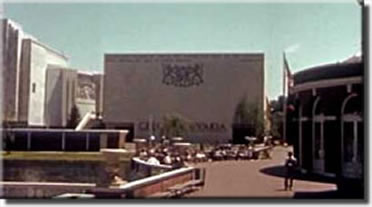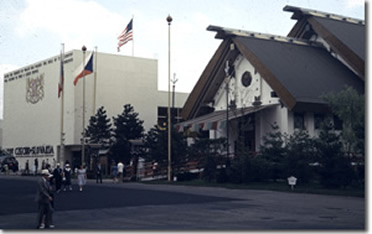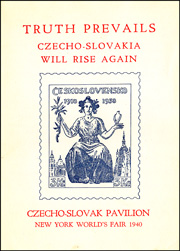Perisphere Ponderings
by David J. CopeThe sudden annexation of Czechoslovakia by German left its pavilion in "The World of Tomorrow" unfinished. Patriotic Americans soon took up the cause of the beleaguered nation.
"The Orphan Pavilion"

The sudden annexation of Czechoslovakia by German left its pavilion in "The World of Tomorrow" unfinished. Patriotic Americans soon took up the cause of the beleaguered nation.
"The Orphan Pavilion"
The pavilion covered 1,100 square feet of floor space. Inside there was an enormous rug representing the outstanding achievements of the Czechoslovakian textile industry.
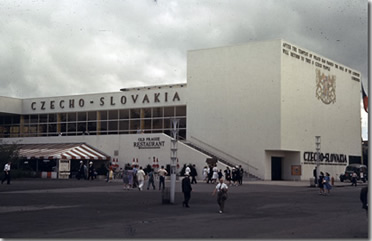
A decorative panel comprised of more than 50,000 pieces of various rare woods portrayed the shoe king, Bata's, home town of Zlin, its life, its work and its service to the world. Along with the many exhibits displaying the country's industry were a restaurant and an open-air beer garden.
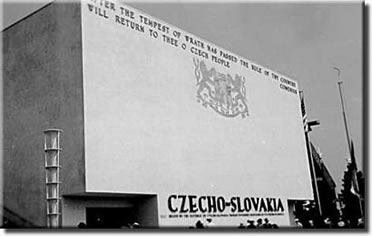

The pavilion displayed composer Rudolf Friml’s piano.
Employees arriving at the pavilion on September 21 noticed three six-inch wooden block letters, “e,” “c,” and “a,” from the front of the pavilion had been removed during the night. The missing letters came from the 50-foot sentence: “Begun by the Republic of Czecho-Slovakia, though unfinished maintained by its friends in America.”
Following the Nazis occupation, resourceful individuals brought one thousand 50-heller postage stamps to the United States. Dr. Eduard Benes, the republic’s last president autographed the Nazi-banned issues. The pavilion’s gift shop sold postage stamps numbered 11 to 1,000 for $10 apiece and Numbers 2 to 10 were on sale at a higher price. President Roosevelt, a devout philatelist, was to receive No. 1 of the Benes series. However, the president’s stamp, contained in an eight-by-ten inch frame, disappeared from its place on the pavilion’s balcony. A day later an embarrassed employee returned the stamp. The man accidentally knocked the framed stamp from the wall and took it home to reframe it overnight.
